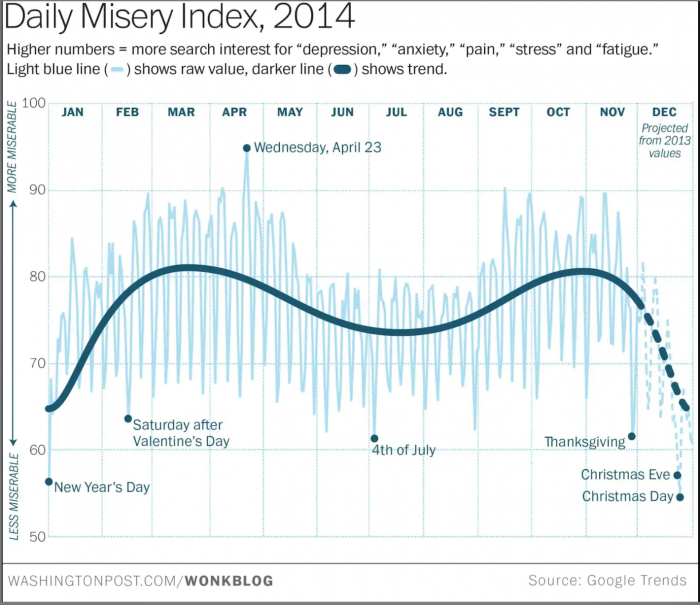Sami Stansberry is an IU senior specializing in Public Relations. Looking at Sami, you would not know that she suffers from seasonal depression, also known as Seasonal Affective Disorder, or SAD.
But Sami is not the only one. Seasonal depression is extremely common, with nearly 3 million reported cases each year. It is more common in the winter months, with cold weather and often overcast skies. Some common symptoms reported by Cornell College include:
- Increased feelings of stress or anxiety
- Lowered mood and/or increased sadness
- Increased irritability
- Increased appetite, weight, and cravings for “junk food” (esp. carbohydrates)
- Change in school performance
- Feeling tired/washed out, increased sleeping
- Decreased sex drive
- Vague physical complaints
Experts say self-care is one of the most important steps in combatting seasonal depression.
“When I know it’s gonna be a hard day I start by getting myself out of bed first and foremost,” said Sami. “Having goals for the day I think is really important too just so you stay on track and you’re not laying around.”
Sami fights her seasonal depression by journaling, exercising, grooming, and making sure she surrounds herself in the best possible environment. She avoids binge drinking and does her best to stay prepared and warm for days bringing difficult weather.
Taylor Stucke is also an IU senior specializing in psychology. She encourages the use of sun lamps to promote wellbeing and combat the struggles of seasonal depression, especially during the winter months.
The Mayo Clinic advises those interested in obtaining a sun lamp to consult a health care provider before purchasing one. Light therapy boxes, or sun lamps, help imitate outdoor lights and can create a chemical shift in the brain, lifting one’s mood.
A sun lamp should “provide an exposure to 10,000 lux of light and emit as little UV light as possible.”
The recommended way to use a sun lamp is within the first hour of waking up in the morning for about 20 to 30 minutes, at a distance of about 16 to 24 inches (41 to 61 centimeters) from the face with eyes open, but not looking directly at the light.
Taylor is familiar with a number of her own peers who have deeply struggled with mental health.
“I have seen my own friends, especially my guy friends, neglect their own self-care and pressure themselves to keep drinking or skipping class and eventually they cannot handle themselves anymore and they drop out,” said Stucke.

This graph from the Washington Post depicts the lows one is more likely to experience in the winter months.
One of the biggest lessons many college students learn is that one’s health and wellbeing should always come first. It is important to listen to one’s body.
According to the American Psychological Association, those who struggle with seasonal depression are advised to use the following strategies to improve symptoms:
- Experience as much daylight as possible
- Eat healthily
- Spend time with your friends and family
- Stay active
- Seek professional help
Students can also receive help here on campus. The IU Health Center Counseling and Psychological Services offers full-time students 2 free counseling sessions per semester. Counseling services are also available in Mandarin, Hindu/Urdu, and Spanish.

